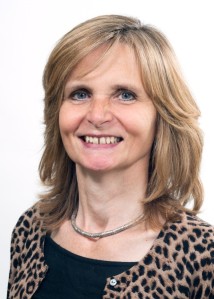It’s been a long while since I’ve posted.
Last year I was ill with a serious auto-immune disease that I’d never even heard of before I was struck down by it.
I was in hospital as an in-patient for six weeks. Shocking. My life changed overnight. It was so weird to be confined to a hospital bed. To be on a public ward. Living among strangers. Ill but ignorant about what was wrong. Becoming increasingly disabled by the day. Unsafe to walk. My legs buckling under me. The reason unknown. I was just coping hour to hour. Learning to fit in. Watching and listening to what other people did so that I would know what to do. Feeling vulnerable. Nothing made any sense. Like a refugee, I kept my head down and tried to do the right thing. The approved thing. The acceptable thing. Out of my own space. Lacking autonomy. Lacking the ability to walk without collapsing. The illness – eventually diagnosed as Guillain- Barré Syndrome[1] – took my legs away. It took my ability to walk away; to balance; to run.
No one told me about having a shower. And it was a weird set up. A wet room, possibly. But no slope on the floor so the water went everywhere. I didn’t even try it. I’m an articulate woman but I didn’t want to make a mess or do the Wrong Thing.
After five days in hospital I was transferred from an orthopaedic ward to a respiratory ward as my suspected, but not yet diagnosed, auto-immune disease might lead to collapse of my lungs and the need for intubation. I was wheeled into a side room. The views were amazing. I could see out over the town to the Surrey Hills beyond. Amazing. I had space and privacy. With my husband. But when he went home at night, I was isolated and alone. In pain and frightened. Unable to move. Unable to sleep. Unable to work the system. Pain. Backache. Pain. Staff came in from time to time but were strangers to me. Their world was not my world.
Some of the night staff were miserable and hard-faced. No warmth. No feeling. No care. Or so it felt to me.
My personal care – commode, washing, dressing – was often provided by middle-aged men. A shock.
No one really explained things. It was only when a neurologist came to see me after 10 days that I begged her to sort out a shower and hair-wash for me. She seemed like an intelligent woman that I could identify with. Please help me, I begged her. Then two female nursing assistants took me into the shower and washed me. I had to be supported; held on the shower stool. Transferred there via the Sara Stedy. (I’ve just learnt that Sara stands for ‘Standing And Raising Aid’. I came to love and loathe this bit of kit. It got me off the bed and onto a commode so I didn’t mess up the bed or need to be catheterised. But the hard metal and rigid plastic, the ‘wheelbarrow for weak bodies’ hurt my legs like hell. My feet slipped forwards so my shins were grinding under all of my weight. When the bruises came, my shin bones hurt even more.) But being under the warm water; being dried on clean towels felt so good. The women helping me got wet but they didn’t worry. They commented that some hospitals provide wellies for staff washing patients like me. They wiped up the wet floor with my towel after my drying was done. I hadn’t thought of that. They dropped the towel in the laundry bin. Now I understood how things were done around here. From then on, I asked and got a shower every five days, or so.
Now I’m over all of that. I’m walking again and fairly fit. I have a newfound sense of patient experience. I’m back to doing maternity advocacy work in maternity services and research. I’ve been reminded how it feels to be snatched from ordinary life into being an in-patient. Although I was ill and many pregnant women are completely healthy and well, coming into hospital and being a teeny weeny cog in a massive system of rules, care, drug rounds, staffing, have some similarities with aspects of pregnancy and labour care. I’m just saying…
In terms of maternity, things I have done this week have included:
- Responded to reviewer comments on a journal article written with colleagues at City, University of London;
- attended meetings at King’s College London as part of the new five-year ARC research and made plans with ARC colleagues for a new Facebook page on patient and public involvement in maternity research;
- attended my local (Kingston) Maternity Voices Partnership (MVP) meeting, taken photographs and made notes for our social media;
- contributed to the London MVP network and the Royal College of Obstetricians and Gynaecologists Women’s Panel (though that was more about HIV-related cancer and its treatment);
- spent half a day with the mother of nine-month old twins and seen how life is unfolding for her;
- made an appointment for MVP chair mentoring;
- booked some training on Co-production – Teasing out the tensions;
- secured funding for my expenses of attending an ‘unconference’, the Unconference for MVPs; a first for me.
[1] The NHS website describes GBS as ‘a very rare and serious condition that affects the nerves. It mainly affects the feet, hands and limbs, causing problems such as numbness, weakness and pain. It can be treated and most people will eventually make a full recovery, although it can occasionally be life-threatening and some people are left with long-term problems.’.
